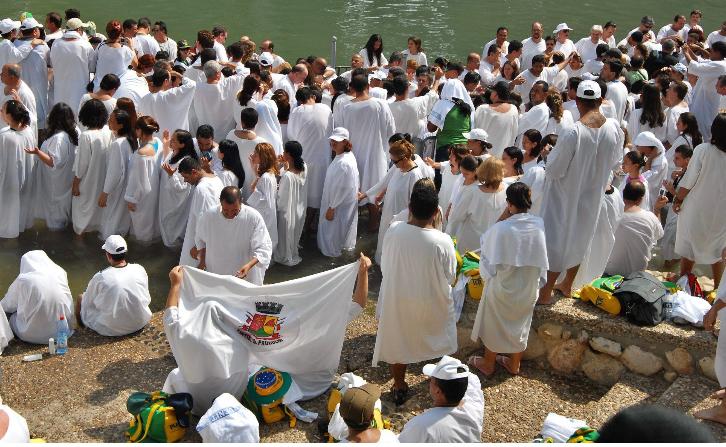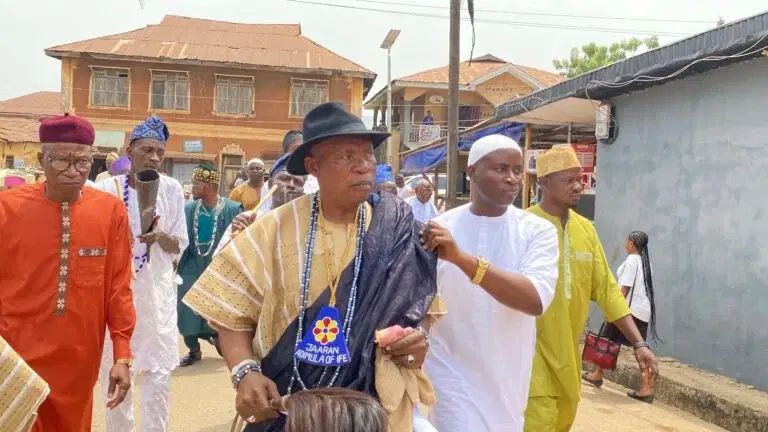Elections: Court Stops FG From Deploying Military
A Federal High Court in Lagos on Monday declared the federal government’s plan to deploy soldiers for the forth-coming general elections as unconstitutional.
The suit was filed by a member of the House of Representatives and member of the All Progressives Congress (APC), Femi Gbajabiamila.
Delivering the judgment, Justice Ibrahim Buba, held that it would be unconstitutional for the federal government to deploy troops for the supervision of the election without the approval of the National Assembly.
The judge said there was no part of the 1999 Constitution that empowers the President of the Federal Republic of Nigeria and Commander-in-Chief of the Armed Forces to deploy the military for election purposes.
“It is unconstitutional for the federal government to deploy the military for the supervision of election purposes without the approval of the National Assembly,” the judge held.
Justice Buba added that a careful perusal and research into all the Nigerian laws would reveal that there is nowhere it is stated that the president could single-handedly deploy the military for elections.
Justice Buba said he was bound by the recent Court of Appeal decision, which nullified the deployment of soldiers for elections, adding that he was also persuaded by the judgment of Justice Mohammed Rilwan of the Federal High Court, Sokoto.
According to the judge, the law does not make provision for the military to be involved in civil activities, and if soldiers must vote, it must be in their barracks.
“The armed forces/military have no role in elections,” he said.
“The time has come for us to establish the culture of democratic rule in the country and to start to do the right thing particularly when it has to do with dealing with the electoral process which is one of the pillars of democracy.
“In spite of the behaviour of the political class, we should by all means try to keep armed personnel and military from being a part and parcel of the electoral process.
“The state is obligated to confine the military to their very demanding assignment, especially in this time of insurgencies by keeping them out of elections. The state is also obligated to ensure that citizens exercise their franchise freely and unmolested,” Justice Buba said.
The judge said the Court of Appeal directly interpreted the Constitution when it held that the combined effects of Section 215 and 217 limit the president’s power to deploy soldiers for the suppression of insurrection and to aid the police to restore order when it has broken down.
“I am bound by the decision of the Court of Appeal and equally persuaded by the decision of the Federal High Court Sokoto which also persuaded the Court of Appeal.
“It is in this regard that the court will say that its duty in interpreting the constitution has been simplified and made easy by the decisions I have referred to extensively,” the justice held.
On whether Gbajabiamila has locus standi, the judge said: “The plaintiff is at liberty to approach this court and seek reliefs whether they are beneficial to him or not. In the instant case, the plaintiff is a Nigerian; he has a right of franchise so it will be beneficial to him.
“This court will not dabble into academic issues. The instance originating summons has merit. The court shall proceed to answer the questions for determination in favour of the plaintiff that the deployment of the armed forces by the first, second, third, fourth and fifth defendants during elections violate the provisions of the Constitution.
“Accordingly, the declaratory reliefs sought are granted. Any militarised voting pattern is anti-democratic and not in consonance with constitutional democracy and civil rule.”
Gbajabiamila, who is the minority Ieader in the House of Representatives, had sued President Goodluck Jonathan and five others to challenge the legality of troops’ deployment for elections.
Other defendants to the suit are the Chief of Defence Staff, Chief of Army Staff, Chief of Air Staff, Chief of Naval Staff and the Attorney General of the Federation and Justice Minister.
However, the plaintiff’s lawyer, Seni Adio said there were allegations and evidence that the military inhibited free movement, free access and intimidated voters in states like Osun, Ekiti and Anambra where they were deployed for election purposes.
He further argued that it was not ideal to deploy military for the supervision of elections in a democratic setting.
Adio added that the Armed Forces Act, which empowers the President as the Commander-in-Chief of the Armed Forces to deploy troops, was subordinate to the Constitution of the Federal Republic of Nigeria.
He consequently urged the court to restrain the defendants from using military in the coming general election.
Responding, lawyer to the defendants, Dele Adesina (SAN), argued that the president, being the Commander-in- Chief of the Armed Forces is empowered under Armed Forces Act to deploy the military to maintain law and order.
The deployment of troops, according to Adesina, was largely due to the peculiar nature of elections and electioneering in the country.








